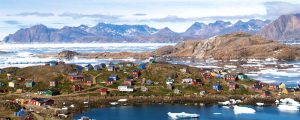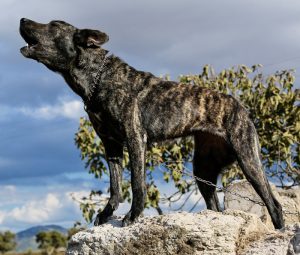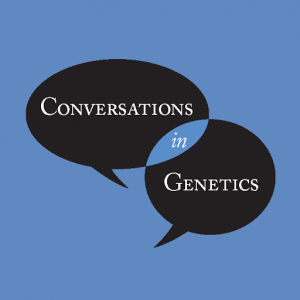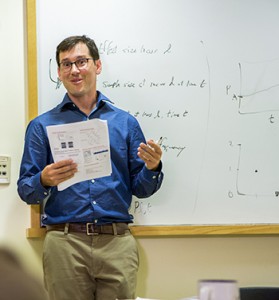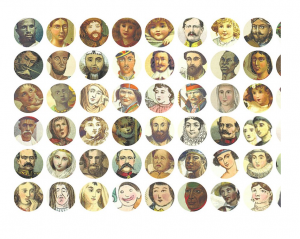Enter your address to receive notifications about new posts to your email.
Articles tagged Human Evolution & Variation
(16 results)
-
Advancing both basic science and medicine by studying human disease genes in model organisms
GSA President Hugo Bellen announces a new seminar series on tools and resources for exploring gene function across organisms. Some of us are worried about the future of the research enterprise, especially funding support for science in our favorite model organism. Why worry? One of the main drivers of this concern is that some believe…
-
Katherine Xue studies how the flu evolves inside you
The recipient of the 2018 Crow Award reveals details of flu evolution at the smallest —and largest—scales. For many viral diseases, a vaccine can provide lifelong protection. But for flu, you need a new shot every year. The influenza virus evolves so fast it presents a constantly moving target for both our immune systems and…
-
Heights and pitfalls in detecting polygenic adaptation
Identifying signatures of polygenic adaptation is getting easier—but a commentary calls for caution in drawing conclusions. If you’ve ever wished for a stepstool so you could see the stage at a crowded concert, or, conversely, if you’re tired of being asked “How’s the weather up there?”, you’ve likely pondered what makes some of us tall…
-
Zooming in: population genetics on a mitochondrial level
The mitochondria powering your cells are not all genetically identical. Genetic variation across the mitochondria of a single individual is common. This diversity is called mitochondrial heteroplasmy, and it plays an important role in the severity of mitochondrial disease. Problematically, the complexities of mitochondrial inheritance makes it extremely difficult to predict how this diversity is…
-
Transcription may be mutagenic in germline but not somatic tissues
When a mutation arises in an egg or sperm cell, it could be evolutionarily important. But if a mutation occurs in somatic tissue instead, the result could be cancer. Mutations in the germline and soma not only have contrasting consequences, they also arise at different rates that may reflect the balance of DNA damage and…
-
The unique genetic variation of the Greenlandic Inuit population could help find novel disease associations
Despite being covered by a massive, permanent ice sheet, Greenland has been continuously inhabited by humans for over a thousand years. Most modern Greenlanders are Inuit whose ancestors migrated eastward from Canada around 1000 AD, bringing technology like kayaks and dogsleds. They eventually settled on the coasts of the world’s largest island, hunting whales and…
-
Genome of fiercely protective Fonni’s Dog reflects human history of Sardinia
A genomic analysis of 28 dog breeds has traced the genetic history of the remarkable Fonni’s Dog, a herd guardian endemic to the Mediterranean island of Sardinia. The results, published in this month’s issue of GENETICS, reveal that the regional variety has developed into a true breed through unregulated selection for its distinctive behavior, and that…
-
New Faculty Profile: Clement Chow
New Faculty Profiles showcase GSA members who are establishing their first independent labs. If you’d like to be considered for a profile, please complete this form on the GSA website. Clement Chow Assistant Professor Department of Human Genetics University of Utah School of Medicine Lab website Personal Twitter: @ClementYChow Lab Twitter: @ChowLab Research program:…
-
Conversations in Genetics talks with Mary-Claire King
The Conversations in Genetics project, led by former GSA President Rochelle Easton Esposito, has a new in-depth interview of Mary-Claire King by Evan Eichler. As described in the video “Talking with Mary-Claire King,” Dr. King is American Cancer Society Professor of Genome Sciences and Medicine at the University of Washington in Seattle. Her innovative studies of human genetics…
-
Geneticist John Novembre named MacArthur “Genius”
GSA is proud to congratulate GENETICS author John Novembre, who was recently named a 2015 MacArthur Fellow or “MacArthur Genius.” Novembre is a computational biologist whose research focuses on understanding human evolutionary history. His research findings have improved the field’s knowledge of human migratory patterns and demonstrated a correlation between shared ancestral geography and genetic similarity among Europeans. These…
-
Human Genetic Diversity and Social Inequalities
As ancient humans spread across the globe from their evolutionary birthplace in Africa, they tended to lose a little genetic diversity at each step along the way. New settlements were probably often founded by small groups that carried only a subset of the total diversity present in their homelands. Successive rounds of this “founder effect”…

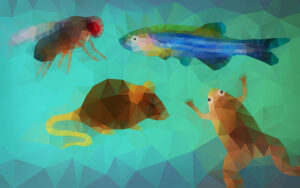
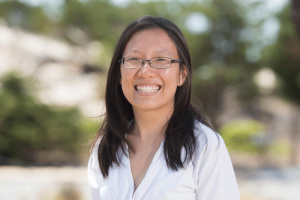
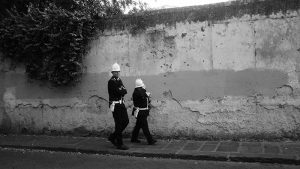

![Cross section of the ovary of an anglerfish. Photo by NIH Image Gallery via Flickr. [CC BY-NC 2.0]](https://s36063.pcdn.co/wp-content/uploads/2017/10/anglerfish_ovary770x-300x225.jpg)
